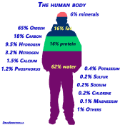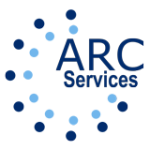Diagnosing Depression
In today’s society, physicians working in family practices, walk-in clinics, health clinics, etc., are the majority of those prescribing mood medications.
Unfortunately, the average physician in most clinics sees patients every 15 to 20 minutes.
A physician can not do a thorough evaluation or exam in that short amount of time. Evaluating and determining if the person is suffering from depression, mental health issues, or addiction takes more time.
Why Some Doctors Overlook Addiction
The typical person struggling with a substance use disorder will be placed on mood medication at one point during their addiction. It often happens at the beginning of their addiction. For example, heavy drinkers and weekend cocaine users have trouble sleeping and feel depressed (typical symptoms of drug use).
Instead of examining lifestyle habits, the quick fix would be an antidepressant or sleeping medication. Unfortunately, most prescribing physicians, but not all, do not spend enough time with the patient to get the big picture.
Someone who is on an addiction path or is fully addicted will be put on drugs such as antidepressants because the symptoms caused by their consumption coincide with depression. Therefore, it is not uncommon for doctors to prescribe these drugs when struggling with an addiction.

Stages of
Addiction
Drug
Overdose

Diagnosing Depression - Ignoring Addiction
A common example of this is the family who has a loved one who is addicted, and this is no secret. The family knows it. As the addiction progresses, depression begins to set in, and the family witnesses this.
The immediate response is to have the person diagnosed and possibly placed on antidepressants and go along the route of a dual diagnosis. A dual diagnosis is real, but it is not in this situation. The depression came after drug use.
It is always essential to seek out the proper help when addiction becomes worse. But it is also important to understand the effects of cocaine, heroin, crystal meth, opioids, or even legal drugs like alcohol will bring about depression. The short-term or long-term abuse of drugs and alcohol will cause bouts of depression and anxiety. Mood medications mixed with other drugs and alcohol increase the risk of an overdose.
Suggested reading:

Alcohol
Overdose
Understanding
Cravings

The Correct First Step for Addiction
Unfortunately, the average physician at any walk-in clinic will not know the patient or spend the time needed. Or some doctors are simply not looking at the addiction and only seeing this as depression, which requires antidepressants.
The first step when any substance abuse problem is present is to treat the addiction. The correct treatment is with detox, addiction counselling, an inpatient treatment program, or an outpatient addiction service. If a family feels their loved one is battling an addiction, speak to the experts in the field, get an addiction assessment done, and focus on treating the substance abuse problem.
Drug and alcohol abuse will cause depression, and antidepressants mixed with drugs and alcohol will compound the problems, potentially leading to severe mental health issues.
Suggested reading:
DrugAddiction.ca - Services
If your loved one is depressed and you know that he or she is using drugs, call one of our experts. We can help you determine what is happening with that person you care about.

Alcohol and
Depression
Drug Induced Psychosis


Addiction Series
- Alcohol and Depression
- Alcohol, Dangers in Stopping
- Alcohol Overdose
- Addiction – Beginning
- Addiction Symptoms
- Addiction Consequences
- Drug-Induced Psychosis
- Recognizing the Signs and Responding to a Drug Overdose
- How to quit crack cocaine?
- It’s Difficult to Quit Drinking
- Overlooking Addiction & Diagnosing Depression
- Stages of Addiction
- Quitting Weed
- The Functional “Addict” Defined
- Understanding Cravings
- What is an Addiction?
- Alcohol and Depression
- Alcohol, Dangers in Stopping
- Alcohol Overdose
- Addiction – Beginning
- Addiction Symptoms
- Addiction Consequences
- Drug-Induced Psychosis
- Recognizing the Signs and Responding to a Drug Overdose
- How to quit crack cocaine?
- It’s Difficult to Quit Drinking
- Overlooking Addiction & Diagnosing Depression
- Stages of Addiction
- Quitting Weed
- The Functional “Addict” Defined
- Understanding Cravings
- What is an Addiction?
Find out more about us.

Marc J. Bernard
Author,
Substance Use Disorder & Recovery Professional,
Referral & Consultation Counsellor


